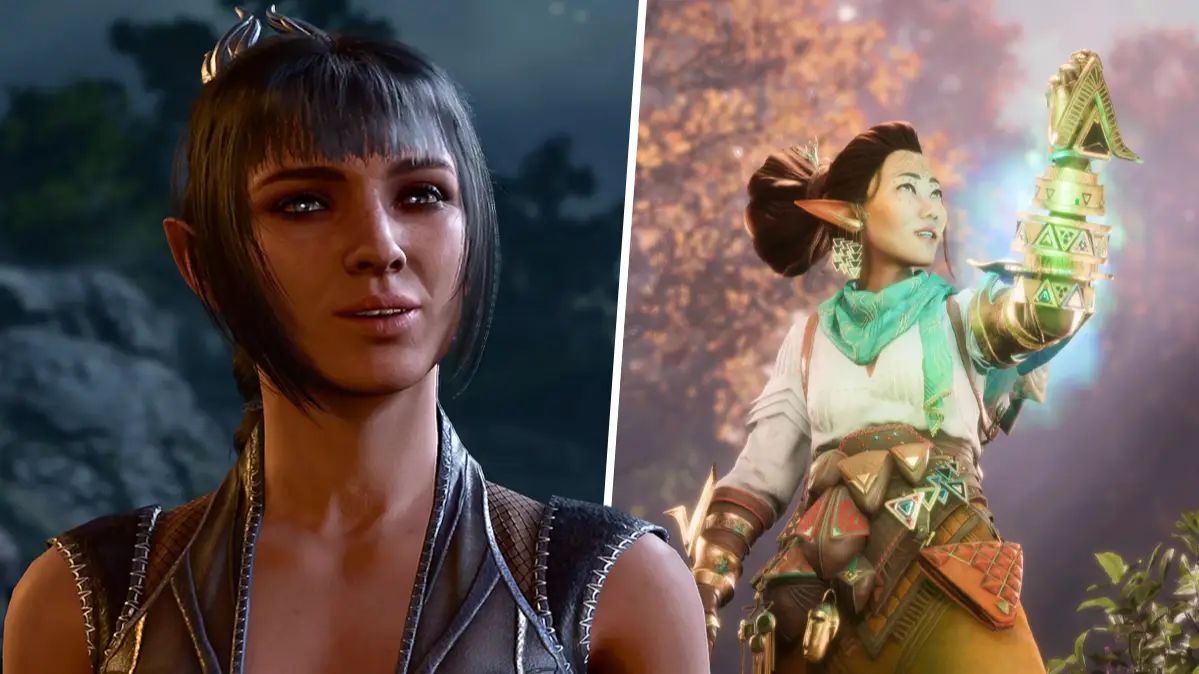
The irony of me writing a feature about needing to step outside of your comfort zone, only to then write another explaining why choosing the same RPG choices isn’t bad isn’t lost on me. But what are human beings if not creatures of extremes?
Try as I might to change how I play an RPG during my second or third playthrough, I typically tend to make the same choices each time. For those who say that you need a good, bad, and neutral playthrough, my actions seem bland. Boring, even. But allow me to counter that opinion with my own.
For reference, I once again kneel at my Dragon Age: The Veilguard shrine, prepared to harp on about my adoration for the game. One key moment during the end-game phase asks you to choose between Harding or Davrin. It’s a decision that proves fatal for whomever you choose – and no, you can’t avoid that.
Having picked Harding without realising the consequences of my actions the first time around, I was determined to choose Davrin during my next playthrough. Alas, it wasn’t to be, for as I researched into any potential downsides to this choice, I discovered that Assan would die too. That adorable griffon is one of the best features of the game, there’s no way I’m willingly going to let him perish.
Advert
Don't argue with me, just re-watch the Dragon Age: The Veilguard trailer
Even when I tried to force myself to push through my discomfort at the idea, telling myself that the pain would last but a moment, I couldn’t do it. Whenever I play The Veilguard, Harding will always die. Emmrich’s necromancy will also always be treated with respect, Rook will help Taash better understand their identity, and Minrathous will be saved.
The latter is a controversial choice, I know, but we’re not here to discuss my decision to choose that city over Treviso – we’re here to talk about why repetition is okay.
In never deviating from the known path, I appreciate that I’m fated to never experience certain in-game content. In The Veilguard, I won’t be able to romance Lucanis. In other RPGs, the consequences, of course, vary. Several times now, I’ve tried to play a durge run in Baldur’s Gate 3, yet I’ve never completed a single one of those playthroughs. The moment I bite off Gale’s arm, I find myself frantically reloading and continuously resisting the urge to be wicked.
Contrary to what you may be thinking, I never tire of doing the same thing. Not even when I start another playthrough straight after the other. I grant you, it’ll be odd to some people, but I find myself enjoying the simple pleasures of being true to myself and the responses I pick.
This isn’t to say that I see each character I create as the same. I always endeavour to give them different personalities, appearances, etc; I’ll even flit between all the conversation options, sometimes choosing the more aggressive. That said, I’ll never play as a quote-unquote “bad” character. There are no renegade runs to be had because I feel too much guilt when I do so.
Does that minimise the RPG experience? Perhaps it does. I don’t agree with that belief because RPGs, by their very nature, are games of choice. They’re interactive stories we have almost god-like reign over, with us free to decide how the story plays out. Will it be a tragedy or a challenging but ultimately wholesome adventure? The fact that I always pick the latter doesn’t take away from the entertainment value of the game, nor my love for RPGs. Much like having a preferred genre trope, I seek out what brings me the most joy.
Maybe I’ll take my own advice and step outside of that comfort zone. Or maybe I’ll be content in knowing not every comfort zone needs to be crossed for my previous feature to still hold value in its truth.
Topics: Features, Dragon Age, Baldur's Gate 3, Bioware, EA, Xbox, PlayStation, PC, Steam
